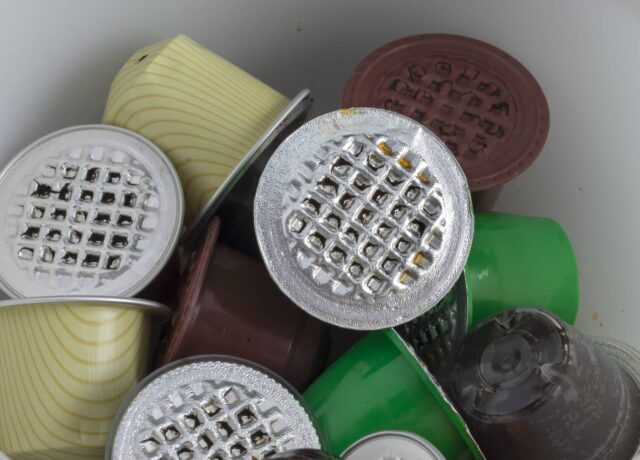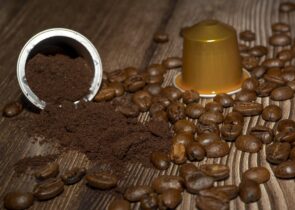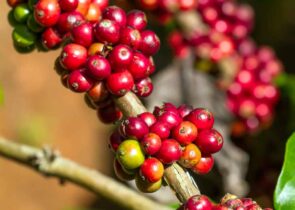I am a heavy coffee drinker who starts early in the morning and drinks well into the afternoon hours. But I find that after too many batches of coffee, I’m up all night using the bathroom!
If you’re like me, you may have wondered, would switching to decaf tea and coffee make a difference? I know there are many health benefits of coffee (and some drawbacks), but do they apply when it’s a cup of decaf coffee?
More importantly, would decaffeinated coffee make me pee as much as regular coffee?
I decided to do some research on the subject of coffee as a diuretic and find out once and for all. Is decaf coffee a diuretic? Keep reading to learn the answers.
What Does Diuretic Mean?
A diuretic is any substance that increases the formation of urine output. In short, diuretics make you pee.
According to the Mayo Clinic, medicinal diuretics (also called water pills) treat high blood pressure, cardiovascular disease, liver diseases, tissue swelling, and kidney diseases and disorders.
Diuretics do this by forcing your kidneys to increase their excretion of sodium and water. Unfortunately, the effects of sodium, or more accurately, too much sodium, can be disastrous.
Of course, lowering your daily salt intake to less than 2.3 grams a day is recommended. It will help prevent high blood pressure, stroke, and many other health risks. But so will a mild diuretic.
Why Does Caffeine Make You Pee?
You may have already guessed where this is heading. Unfortunately, the vast majority of moderate coffee drinkers are all too familiar with the effects of caffeine on hydration.
Usually, through multiple trips to the bathroom, depending on how many cups of coffee you drink.
The Science
Caffeine in coffee acts as a diuretic, affecting the process of hydration and preventing your kidneys from absorbing water. As a result, your favorite black coffee in the morning fills your bladder more frequently.
Caffeine inhibits the production of ADH or the antidiuretic hormone. Usually, your pituitary glands release ADH, which travels to the kidneys, and tells them your body is thirsty and needs water. This signals the kidneys to create Aquaporins.
Aquaporins are basically water carriers, and their main job is to transport water to all the cells in your body. No ADH, no aquaporins. And, if there are no aquaporins, all that water that should go to your cells goes to your bladder, instead.
Can Caffeine Dehydrate You?
The short answer is…maybe.
According to a study conducted by Dr. Lawrence Armstrong, all those cups of coffee per day don’t increase your risk of dehydration. The water in your cup of coffee would balance any harmful effects that might lead to dehydration.
However, your morning caffeine content might be dehydrating in other ways. For example, caffeine stimulates your metabolism, which leads to more muscle use and may heat your body.
This increase in heat means your body needs more water, and you may become dehydrated.
Balance your caffeine intake with several cups of water every day, and you won’t need to worry.
How Much Caffeine Does It Take to Make You Start Peeing?
No matter what’s going on inside, the results are the same: an increased discharge of urine. But what amount of caffeine from coffee beans will trigger these diuretic effects?
Well, there seems to be some disagreement on this topic. According to one source, you’ll start to feel the adverse effects of caffeine on your bladder after about 300 milligrams.
However, another source sets that number solidly at 500 milligrams of caffeine.
And according to the Mayo Clinic, the average daily intake of caffeine per day should not exceed 400 milligrams. So, how many cups per day is that?
One cup of coffee contains about 100 milligrams. That means anywhere between three to five cups of coffee, and you’ll be running to the bathroom frequently.
But remember, caffeine doesn’t just come from tea and coffee. There are even caffeine-containing foods!
- Energy drinks – 91 milligrams per 8 ounces
- Soda – 49 milligrams per 16 ounces
- Dark chocolate – 24 milligrams per ounce
- Chocolate cake with frosting – 8 milligrams per slice
Why Choose To Drink Decaf?
The coffee enthusiasts out there might be wondering why anyone would choose to drink decaf tea and coffee. But there are many reasons to make the switch.
Monitoring your caffeine level is critical if you suffer from caffeine intolerance or a caffeine allergy.
Even for someone that doesn’t suffer from caffeine intolerance, the caffeine in coffee can cause anxiety, restlessness, sleeplessness, and digestive problems.
It’s important to note that the decaffeination process cannot remove all of the caffeine. Trace amounts still persist, which is critical to note for any caffeine allergy.
How Do They Make Decaf Coffee Beans?
Several decaffeination methods seek to strip caffeine from your regular coffee. Let’s look at three of the most popular. Remember, though, no decaffeination process removes all of the caffeine.
The direct solvent method involves steaming green coffee beans before soaking them in a methylene chloride solvent. Though the solvent absorbs the caffeine, it also removes quite a bit of flavor.
The indirect solvent method is a bit more complicated but seeks to retain more flavor in the beans. Coffee beans are soaked in hot water and then removed.
The green coffee extract solution is added to the water where it absorbs the caffeine and small amounts of flavor compounds. Then the beans are added back to the water and processed like normal.
The carbon dioxide method involves soaking the green coffee beans in highly compressed carbon dioxide. This liquid carbon dioxide acts as the green coffee extract solution but leaves all of the flavor compounds behind.
However, this method does tend to be more expensive and is generally reserved for specialty decaf coffee.
Finally, there is the water method for the decaffeination of coffee beans.
The Swiss water process involves soaking beans in hot water to extract caffeine and flavor compounds and passing that extract through a carbon filter to remove caffeine while retaining the flavor compounds.
This Swiss water process eliminates any expensive solvents or chemicals added to your regular coffee.
What are the benefits of decaf coffee?
You may not believe there’s such a thing as healthy coffee, but there is quite a bit of goodness in decaf coffee. If you suffer from health issues like acid reflux or anxiety, cutting the caffeine and opting for decaf will make a big difference.
But because decaf coffee is roasted, it retains all of the wonderful antioxidant benefits that your caffeinated coffee has. In addition, it reduces your risk of type 2 diabetes by 7% and reduces liver enzyme levels.
Also, because of those trace amounts of caffeine, you may still experience that mental focus as from coffee with caffeine.
Does Decaf Coffee Make You Pee?
Of course, we haven’t answered our question yet! Does decaffeinated coffee make you pee?
The answer: Not really. At least, not any more than a couple of cups of water would.
As mentioned, decaffeinated coffee beans do contain small amounts of caffeine content—about two milligrams in your cups of decaf coffee.
That means you’d need to consume about 150 cups of decaf coffee before that diuretic effect kicks in. And I have a feeling you’ll be running to the bathroom long before you finish!
Conclusion
Decaffeinated coffee impacts many health factors, including blood pressure, diabetes risks, and anxiety. But it won’t make you pee.
Enough caffeine is removed in the decaffeination process to negate any diuretic effects. Therefore, decaf coffee is not a diuretic.
So if you’re worried about your bladder and all those trips to the bathroom, go ahead and make the switch to any honest decaf coffee type.
Happy Caffeinating!







